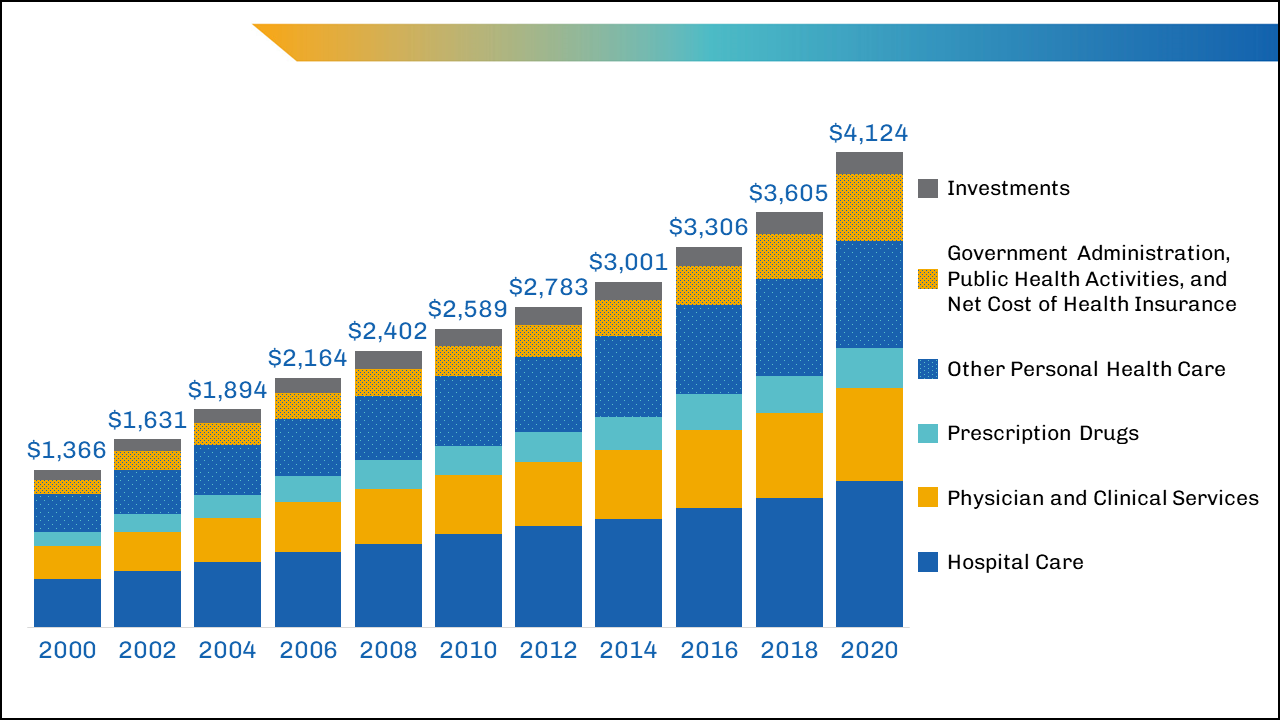Finest Healthcare RCM Practices to Improve Functional Efficiency and Collections
Finest Healthcare RCM Practices to Improve Functional Efficiency and Collections
Blog Article
Recognizing the Duty of Health Care RCM in Enhancing Monetary Performance and Patient Contentment
Navigating the intricacies of Health care Income Cycle Management (RCM) is essential for achieving optimum monetary performance while at the same time elevating person complete satisfaction. As we explore the transformative potential of RCM, concerns regarding its critical execution and future innovations bid, encouraging understandings that might redefine industry standards and client experiences alike.

Secret Components of RCM
In the complicated landscape of medical care, Income Cycle Administration (RCM) is critical in making certain monetary security and functional performance. Individual registration and eligibility verification are fundamental actions, making sure that exact client details is caught and insurance protection is verified prior to solutions are rendered.

Charge capture is one more necessary part, including the precise recording of solutions offered to people. It makes sure that all billable solutions are accounted for, thus making best use of earnings capacity. Simultaneously, medical coding translates patient encounters right into standard codes, which are essential for invoicing and regulative compliance.
Cases entry and administration comply with, involving the preparation and entry of insurance claims to payers. This process requires thorough interest to information to reduce mistakes and avoid hold-ups. Rejection administration is a positive strategy to resolve and attend to refuted claims, guarding income streams.
Lastly, repayment uploading and client collections complete the cycle, ensuring payments are precisely tape-recorded and impressive balances are sought. Together, these components form a robust structure that sustains the operational and monetary health and wellness of health care companies.
Effect On Financial Performance
Effective Profits Cycle Administration (RCM) dramatically affects a health care organization's monetary performance by optimizing capital and reducing income leak. RCM incorporates the extensive invoicing and collection procedures that make sure healthcare companies efficiently handle their financial deals from patient registration to final settlement. By simplifying these processes, companies can lessen rejected claims, accelerate repayment cycles, and improve general monetary wellness.
Monetary performance is boosted through careful administration of payment treatments, which includes exact coding and prompt entry of claims. This minimizes the chance of insurance claim denials and denials, which can dramatically hinder revenue flow otherwise addressed promptly. Moreover, incorporating innovative technology solutions helps with real-time monitoring of cases and monetary metrics, giving health care administrators with the tools necessary to make informed calculated decisions.

Enhancing Patient Contentment
While enhancing financial efficiency is a vital goal of Revenue Cycle Management (RCM), it likewise plays a crucial duty in enhancing patient contentment. By lowering management problems, RCM enables health care companies to focus more on patient treatment, which straight improves patient satisfaction.

RCM likewise improves individual complete satisfaction with efficient communication. By keeping a detailed data source of person details, RCM facilitates improved interaction in between people and healthcare service providers, ensuring clients really feel informed and valued.
Methods for Effective RCM
Accomplishing reliable Income image source Cycle Monitoring (RCM) requires health Read More Here care companies to implement a collection of tactical techniques that ensure financial stability and functional performance. One crucial method is the fostering of technology-driven services, such as incorporated software systems that streamline payment processes, minimize errors, and boost information precision. These systems enable real-time monitoring of financial metrics, permitting for prompt recognition and correction of inefficiencies.
An additional technique is the standardization of procedures throughout the revenue cycle. Healthcare RCM. This entails creating constant plans for client enrollment, insurance policy verification, and declares processing. By making certain that all staff comply with these requirements, companies can decrease inconsistencies and expedite settlement collections
Team training and development additionally play a pivotal function in reliable RCM. Well-trained employees can efficiently browse complicated invoicing procedures and guidelines, decreasing rejections and enhancing capital. Regular updates on plan modifications and best methods assist preserve a knowledgeable and experienced workforce.
Future Trends in RCM
As health care companies enhance their Income Cycle Administration (RCM) approaches with modern technology and standardized processes, attention is now transforming towards the future patterns forming this critical location. One substantial fad is the assimilation of man-made intelligence (AI) and maker discovering to automate complicated jobs, such as cases refining and anticipating analytics. These innovations are anticipated to reduce mistakes, increase transaction times, and supply data-driven understandings for better decision-making.
Furthermore, the change towards value-based care proceeds to influence RCM methods - Healthcare RCM. Healthcare carriers are expected to progressively concentrate on person outcomes and fulfillment, demanding RCM systems that can accommodate new compensation designs. This change will certainly require more extensive information collection and evaluation to properly report and measure on performance metrics
Interoperability is one more arising top priority, as seamless data exchange in between disparate systems comes to be crucial. Boosted interoperability will assist in even more accurate individual information sharing, decreasing management worries and enhancing the person experience.
Final Thought
Health Care Earnings Cycle Management (RCM) dramatically influences both monetary efficiency and person satisfaction by enhancing invoicing procedures, guaranteeing exact coding, and making it possible for timely cases entry. Effective RCM reduces earnings leak and increases cash circulation, minimizing case rejections and quickening payments. This efficiency fosters depend on and contentment amongst people. RCM systems likewise help with better communication and flexible repayment choices, developing a find more info patient-centered experience. Future RCM fads will likely focus on further integrating technology to boost these advantages.
Browsing the complexities of Medical care Revenue Cycle Administration (RCM) is important for accomplishing optimum monetary efficiency while at the same time boosting client contentment. RCM includes the thorough invoicing and collection procedures that guarantee medical care providers successfully manage their economic purchases from individual registration to last settlement. By reducing management problems, RCM permits medical care suppliers to concentrate extra on patient care, which straight enhances person fulfillment.
By keeping a comprehensive database of individual information, RCM assists in improved communication between clients and medical care providers, making certain patients feel notified and valued.Medical Care Earnings Cycle Administration (RCM) significantly influences both economic performance and individual complete satisfaction by optimizing billing procedures, ensuring accurate coding, and making it possible for timely cases entry.
Report this page